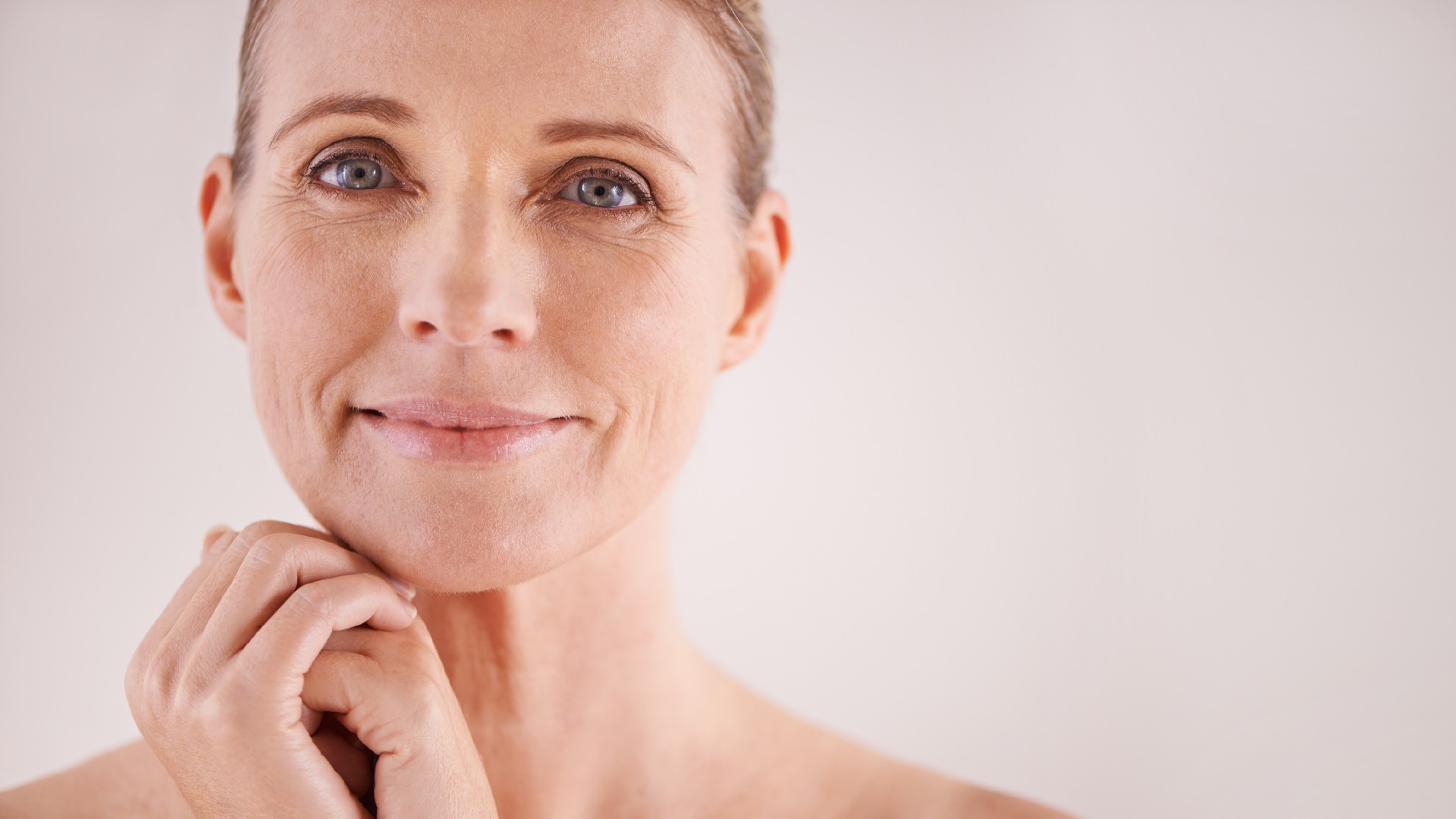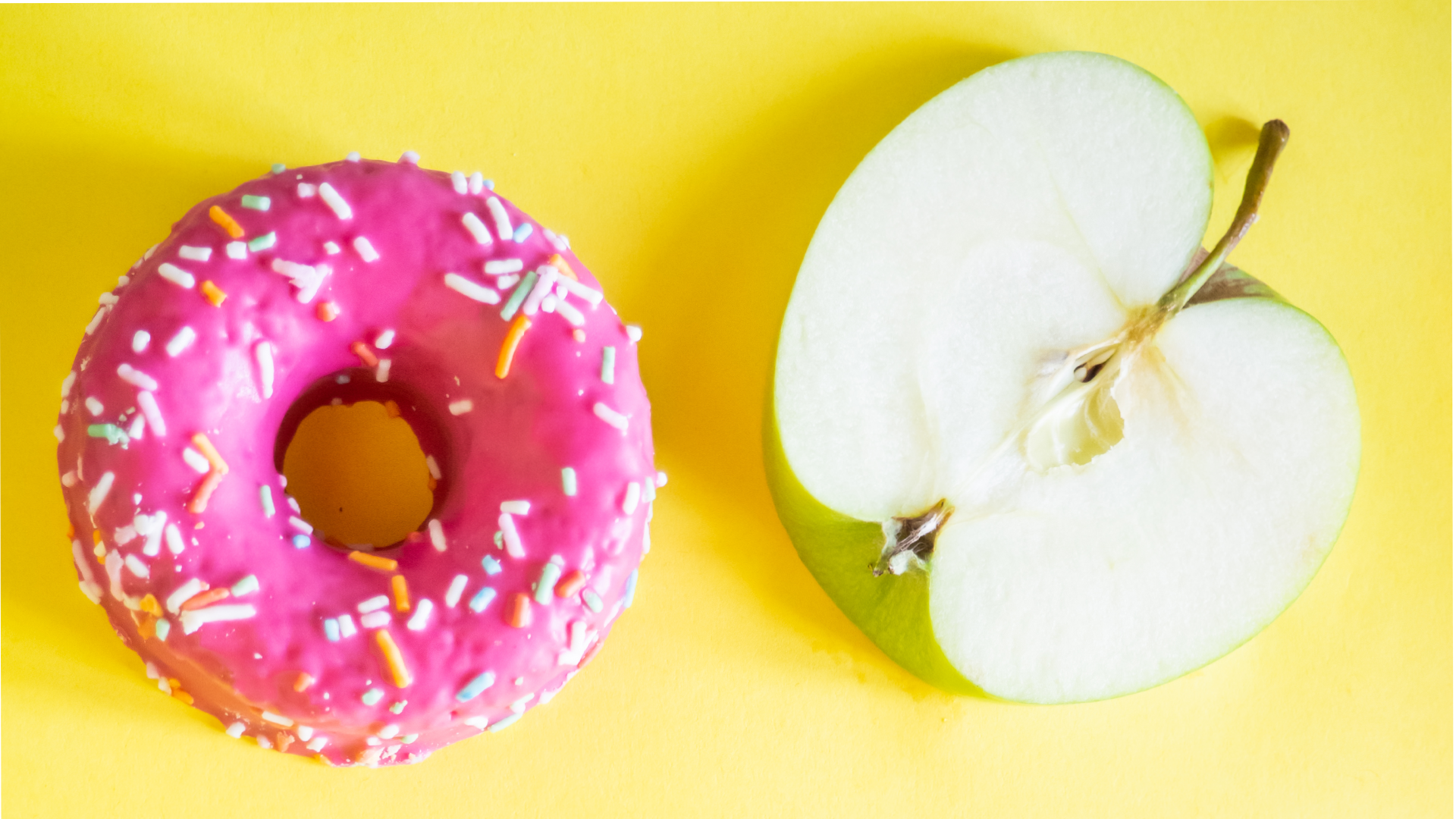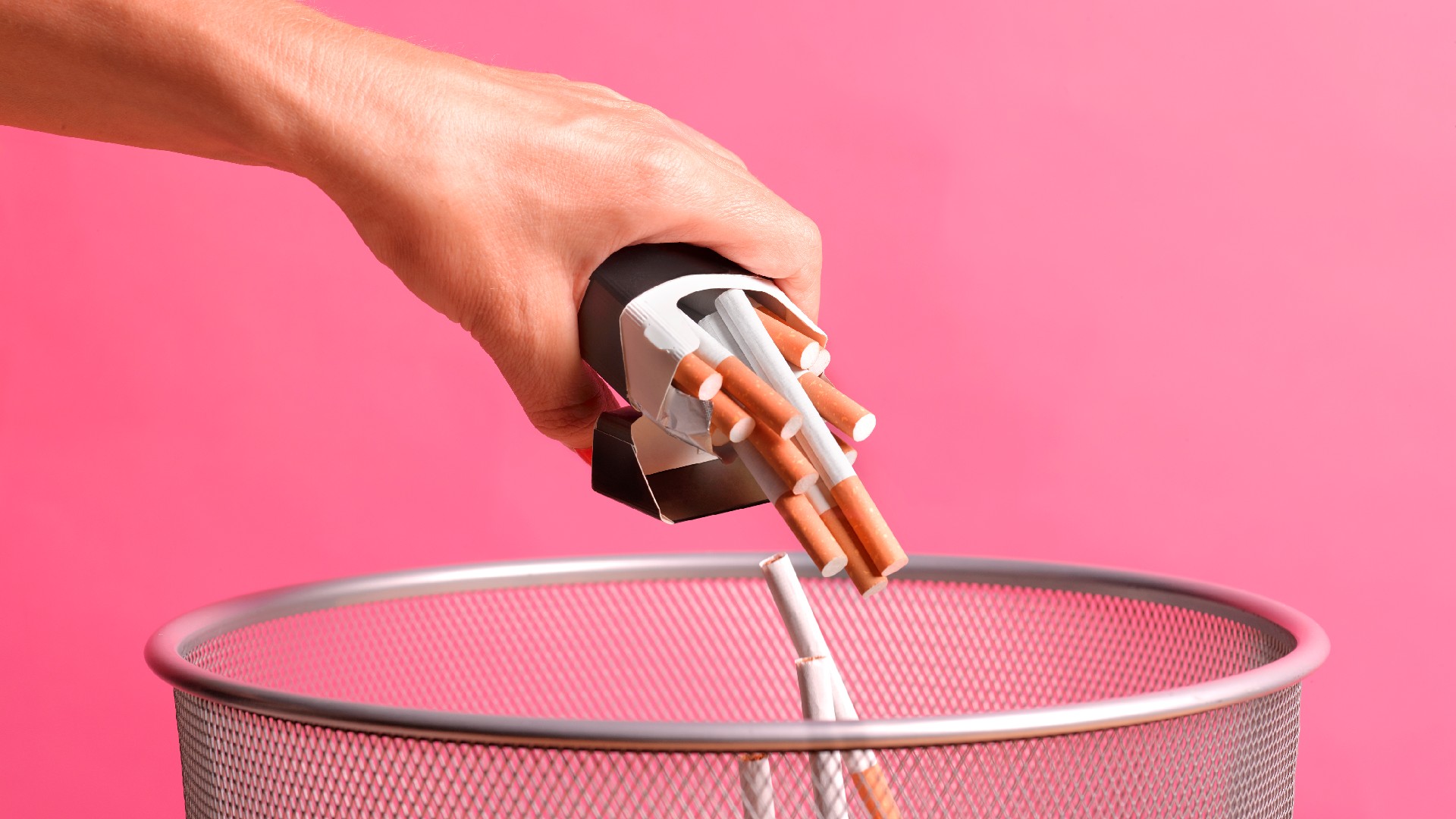How to prevent wrinkles, 15 scientifically proven tips
Try becoming more conscious of these wrinkle-makers and you could slow down your skin's ageing


Learn how to prevent wrinkles with these 15 tried and tested ways to delay the ageing process
Lines, dark circles and liver spots are part and parcel of the ageing process but the good news is that by making a few adjustments to your daily routine, you can learn how to prevent wrinkles. You’re welcome!
But first, how do wrinkles form in the first place? As skin loses volume, plumpness and elasticity with age, it’s less able to spring back from repetitive facial expressions, which leads to lines, wrinkles and deeper creases over time.
“Skin ageing is due to a combination of intrinsic and extrinsic factors,” explains Consultant Dermatologist, Dr Sharon Wong. “Intrinsic ageing is largely due to genetic factors and an accumulation of oxidative stress over time, which causes damage to key structures in the skin. From early adulthood, the rate of collagen production reduces by approximately 1% every year.”
It’s these extrinsic factors that we have a chance to defend against and delay the onset of premature ageing. Some of them you’re probably already doing - we all know about the damaging effects of UV exposure, for example. Others you may be surprised by but don’t declare your skin a write-off - it’s never too late to make positive skincare steps to protect, nourish and repair. With that in mind, here are 15 top tips on how to prevent wrinkles.
How to prevent wrinkles
1. Moisturise regularly
Oilier complexions and well-moisturised faces keep skin nice and springy, and therefore more resilient to wrinkles.
An eight-year study by the British Journal of Dermatology, funded by Olay, showed women with dry skin types are more likely to develop severe wrinkles – and more of them.
Parenting advice, hot topics, best buys and family finance tips delivered straight to your inbox.
The research found that a typical 28-year-old woman with dry skin will have an increase of 52 per cent more visible wrinkles by the time she reaches 36. But, this can be dramatically reduced to just 22 per cent by the same age if she had well-hydrated skin. Dr Greg Hillebrand, lead author of the study said: "We can dramatically delay the onset of persistent wrinkles by protecting skin daily with an effective moisturiser and sunscreen."
Skin becomes drier with age so it’s important to moisturise twice a day and look out for dermatologist-approved ingredients, such as glycerin, hyaluronic acid and ceramides, three very effective moisture-boosters.
2. Protect against blue light
Computer monitors, tablets and mobile phone screens emit something called blue light – the same blue light that is present in morning light – which suppresses the sleep hormone, melatonin. This can affect our sleep pattern and quality, which has a negative impact on our skin’s repair process.
“Blue light can cause an influx of harmful free radicals to be released, causing oxidative stress to the skin,” explains award-winning aesthetician Dr Rita Rakus. “Free radicals break down and damage the collagen and elasticity in the skin, increasing the signs of ageing as well as inflammation.” If you are chained to your computer during the day, ensure you take regular screen breaks and make your bedroom a tech-free zone.

3. Cut the sugar
Sugar isn’t just bad for your waistline, it’s bad for your face too.
Research shows that sugar breaks down collagen and elastin in our skin, which accelerates the ageing process and causes 'sugar sag'.
Try cutting back on sugary snacks, find sugar substitutes and swap starchy carbs that break down into sugars for protein snacks that will fill you up for longer.
4. Ditch the straw
Your dentist may be pleased that you’re making a conscientious effort to avoid staining, but pursing your lips around a straw or drawing water from a plastic bottle causes vertical furrows around the mouth.
Dermatologist Debra Jaliman, MD, author of Skin Rules, states that repetitive muscle motion breaks down the collagen around your mouth, creating permanent creases in your skin. This can create a fixed line and over time, a deep wrinkle.
Give up the straw - just keep your dentist happy by brushing your teeth after a sugary drink. And if you drink bottled water, pour it into a glass.
5. Don’t stress
Anxiety isn’t just bad for your mind - it takes its toll on your face too. Stress causes chemical changes in the body that lead to the production of free radicals. These nasty molecules attack the skin and dramatically age cells. “Chronic stress elevates the body’s cortisol (stress hormone) level which is known to damage collagen and elastin,” explains Dr. Sharon Wong. “Stress also creates a pro-inflammatory environment in the body, which impairs its ability to repair itself.”
Jennie Hart, aromatherapist and founder of Eve & Keel, shares her top tips for managing anxiety and de-stressing your skin.
*Start by taking a step back to reflect on the bigger picture. Explore how stress is showing up in your life and whether you can make any changes. Understanding your personal experience of stress will help guide your best route forward in reducing cortisol and improving skin health.
*The most effective place to start is with your breath. Try setting an hourly notification on your phone. A breathing style well known for its ability to reduce stress is 'box breathing' - inhale for a count of 4, hold for 4, exhale for 4, hold for 4 - repeat 4 times.
*Incorporate essential oils into your daily routine. Three oils to seek out are frankincense, lavender and neroli. Roll across pulse points on the wrists and temples to relax.
6. Go for an eye test
If you’re squinting to read the fine print or straining to make out that turn in the distance, the muscles around your eye are being strained. The same is true when you forget your sunglasses on a bright day.
According to the American Academy of Dermatology, these frequent squinting and repetitive squinting movements cause deep, pronounced lines and wrinkles.
Check in with your optician every two years or if you suddenly find yourself struggling, and keep a pair of sunglasses in your handbag for sunny spells.
7. Don’t look down at your phone
It’s totally normal to notice the onset of jowls as you hit your 40s, given the natural loss of elasticity, but experts warn it’s occurring earlier. Known as ‘tech neck’, our obsession with staring down at our phones and tablets is causing premature creases and folds on the neck.
Dr Christopher Rowland Payne, Consultant Dermatologist at The London Clinic, told The Telegraph: ‘The problem of wrinkles and sagging of the jowls and neck used to begin in late middle age but, in the last 10 years, because of ‘tech-neck’, it has become a problem for a generation of younger women.’ It is most common in women aged between 18 to 39 who have an average of three digital devices and peer at their screens up to 150 times a day
To reduce the issue it's best - if you can - to sit up straight and stare at your device at face level to stretch out the skin on your neck and jawline.
Use a targeted neck cream to hone in on the loss of elasticity in this delicate area, and sweep upwards in long strokes starting at the base of the neck to encourage lift.

8. Sleep on a silk pillowcase
Sleep is crucial to skin repair, but some dermatologists claim to be able to tell which side you sleep on just by looking at the furrows on your face. If you lie on one side of your face, night after night, you’re more likely to develop more pronounced wrinkles on that side, especially if you sleep on a rougher fabric.
If you can’t train yourself to sleep on your back, swap your cotton pillowcase for a silk or satin one. Skin and hair will slip and slide over the material so you’re less likely to wake up with ridges, wrinkles and frizz - bonus.
9. Use retinol
Retinoids is the umbrella term for anything derived from Vitamin A, with retinol being the most famous over-the-counter retinoid. Some retinoids can be bought off the shelf, and others are more potent and only available on prescription. Retinol absorbs deep into the skin and works at a cellular level to increase elastin and collagen production, creating a smoother, plumped-up effect.
Studies show that retinol also speeds up the skin’s natural exfoliation process to improve the overall tone and texture. Results can take from six to 12 months but it's considered the gold standard of anti-ageing ingredients by dermatologists. With such potency comes a risk of irritation and dryness, particularly in sensitive skin, so dermatologists recommend beginning with low strength retinol twice a week to build up your tolerance.
Once your skin acclimates, you can step up the potency and apply more regularly.
10. Get more sleep
We all know the importance of a good night’s sleep. In fact, according to a 2021 Skincare Trend Report from L'Oréal Active Cosmetics Division, getting enough sleep was considered a more important factor in looking after one’s appearance than using skincare products.
During the day, skin is focused on protecting itself from the environment, but at night it goes into repair mode. When we don’t sleep enough, our body clock, known as the circadian cycle, can be disrupted affecting the skin’s overall look and feel. 11pm marks the start of the critical time for re-establishing cellular metabolism, which refers to how much energy your cells have. Overnight your skin is constantly repairing itself but the highest level of regeneration occurs between midnight and 1am. This critical hour coincides with your deepest sleep, known as REM (random eye movement) sleep. During this time blood flow increases to deliver nutrients to skin cells and eliminate toxins, and the outermost layer of your skin sheds.
Get an early night and spritz your bed linen with a pillow mist to cue the mind ready for sleep. A bath an hour before bed can help, too. We all experience a slight drop in temperature right before we go to sleep, so soaking in a warm bath helps raise your body temperature artificially before cooling down, coaxing you into that sleepy zone.

11. Quit smoking
Smoking is bad for your health and your face. Tobacco has a detrimental effect on our collagen and elastin levels, which means wrinkles become deeper and more visible. Nicotine causes blood vessels to constrict, therefore reducing blood flow to the face so skin looks dull and lacklustre. Need more proof? A 2013 study conducted on identical twins found that the smoker’s skin had noticeably more wrinkles than their non-smoking counterparts.
12. Wear SPF every day
“The most significant cause of extrinsic ageing is UV exposure, accounting for 80% of facial skin ageing itself,” says Dr. Sharon Wong. The best thing you can do for your skin is to wear SPF regularly and invest in a sunscreen for your face.
Wear a minimum of SPF30 every day, even on an overcast day is essential for preventing wrinkles. The sun’s rays can still penetrate through the clouds.
13. Tweak your diet
Your diet can affect how well your skin ages. A Dutch study from 2019 found that women whose diets were high in unhealthy snacks and red meat were more likely to have more wrinkles than those women whose diet included more fruit. A good skin diet includes foods with antioxidant and anti-inflammatory properties. These superfoods protect against skin damage and premature ageing.

14. Exercise regularly
A jog around the block or aerobics class is a tonic for the mind when feeling anxious, stressed and a little off-kilter.
By relieving stress and the impact it has on accelerated ageing, exercise can be good for the skin. Exercise also improves blood flow to deliver oxygen and nutrients to the skin and boost collagen production.
In fact, a study conducted by McMaster University in Ohio revealed that exercise not only helps keep your skin looking young, but it also can reverse the aging process and reduce wrinkles.
15. Protect against pollution
Pollution saps the skin’s radiance, breaks down collagen and elastin, which leads to wrinkles and sagging, weakens the skin barrier and can even trigger acne and eczema.
Pollutants from car exhausts, smoke and factory emissions all increase the number of free radicals in the air. Research shows these pollutants pose a dangerous threat to our skin cells and accelerate the ageing process. Antioxidants – pollution-fighting superheroes – help protect your skin against the daily onslaught of environmental damage so look for sunscreens with built-in antioxidant protection.
Up your antioxidant intake in your diet by eating berries, legumes and pecans.
Can you reverse wrinkles?
When it comes to the ageing process and how to prevent wrinkles, most of the time, prevention is better than cure. But if the damage is already done, is there anything we can do to turn back the clock on the ageing process? “Whilst it is not possible to completely reverse wrinkles, there are effective treatments to help reduce their appearance,” says Dr. Sharon Wong. “Very fine wrinkles may be addressed by topical retinoids alone whilst deeper wrinkles may also need injectables such as Botox and fillers to reduce their appearance.”
Botox is a solution injected into the skin to restrict muscle movement. By hampering this movement, Botox minimises existing wrinkles and prevents new ones from forming. It’s not cheap - you could pay around £200 on your first visit, but the effects last up to six months. Dermal fillers are used to plump up lines, folds and wrinkles. Hyaluronic acid is one of the more common types of fillers, and is great at smoothing out skin. Expect results to last between 6 and 12 months.
There are also cosmetic products that offer a temporary filling effect - think of them like facial Polyfilla. These wrinkle fillers will plump, pad out and smooth creases, just dab on to lines before your make-up.

Stephanie is a Beauty Editor across five national women’s magazine titles, with more than fifteen years’ experience working within the beauty industry. She has been shortlisted for multiple awards at the J&J Beauty Journalism Awards, and was the runner-up at the Wella Hair Journalism Awards in 2009. She has written for many brands, including Grazia, Now, More!, Fabulous, Woman & Home, NW, Woman, Woman's Own, Woman's Weekly, Essentials, Best, Chat, Pick Me Up and OK! Online. In 2010 she launched her own beauty blog, which was also shortlisted for Best Beauty Blog in the 2011 and 2012 J&J Beauty Journalism Awards.